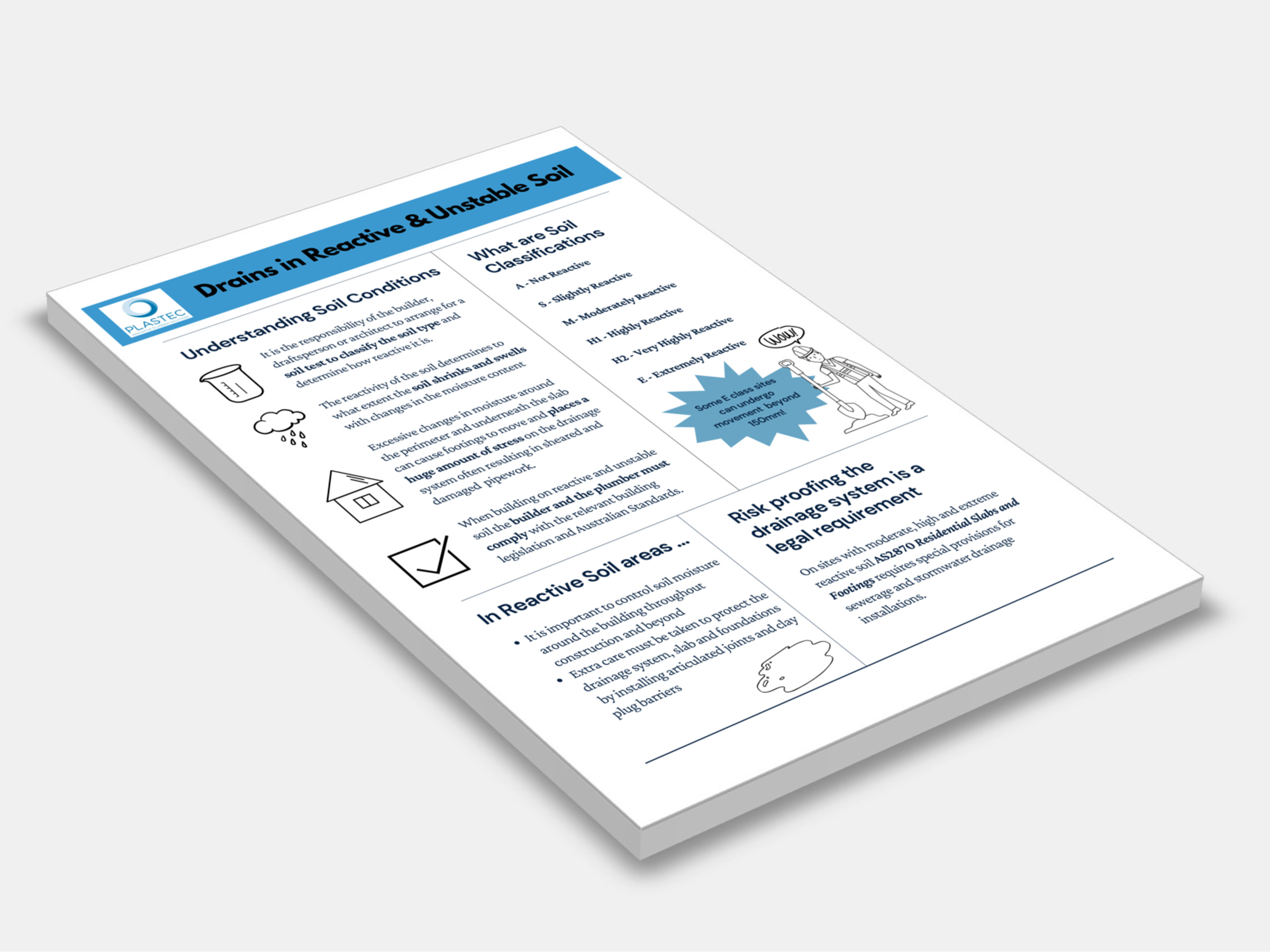
Type
Publisher
Plastec
Publisher
Plastec
Version: (Current)
Short Description
On sites with moderate, high and extreme reactive soil AS2870 Residential Slabs and Footings requires special provisions for sewerage and stormwater drainage installations.
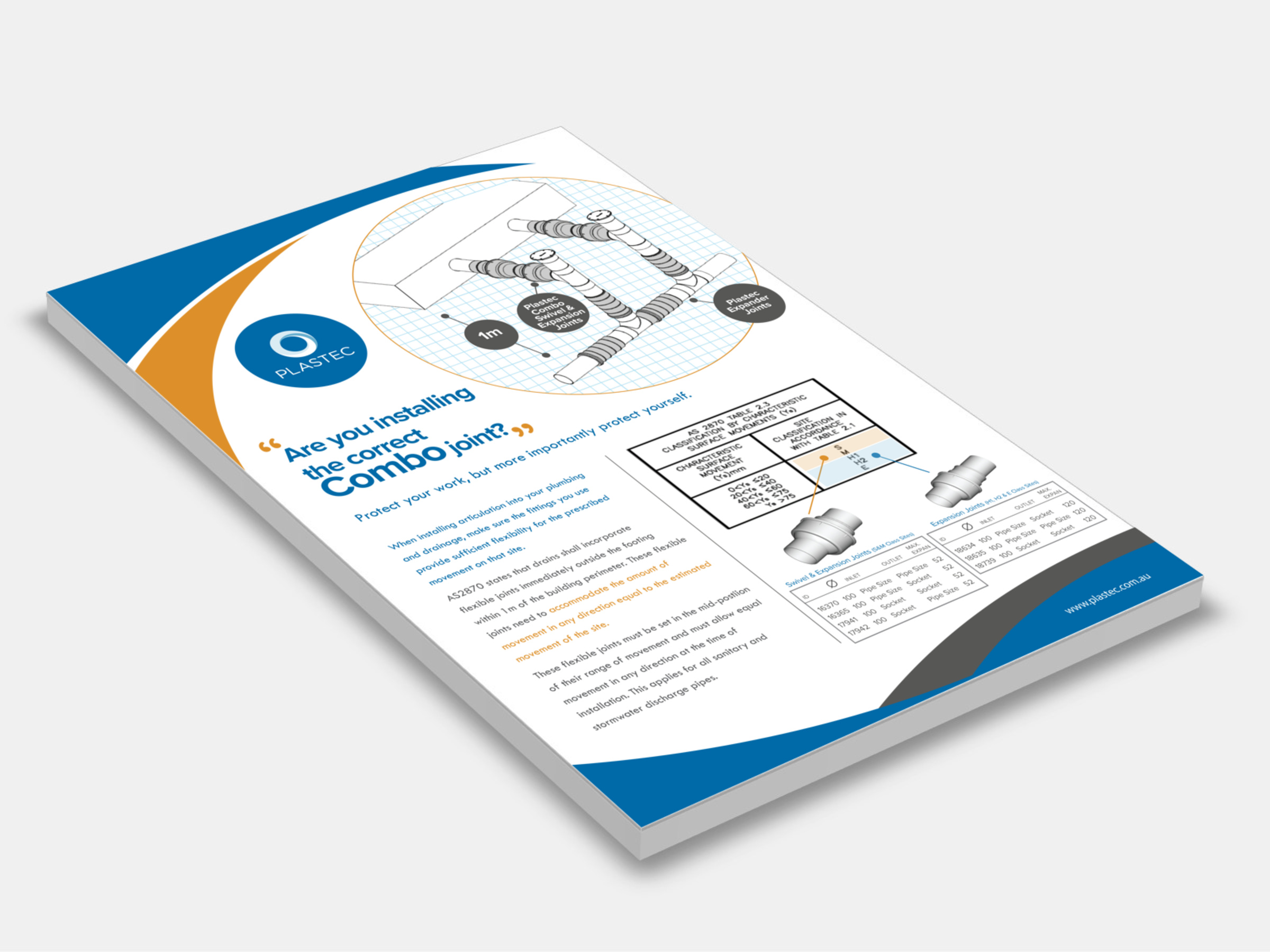
Type
Publisher
Plastec
Publisher
Plastec
Version: (Current)
Short Description
When installing articulation into your plumbing and drainage, make sure the fittings you use provide sufficient flexibility for the prescribed movement on that site.
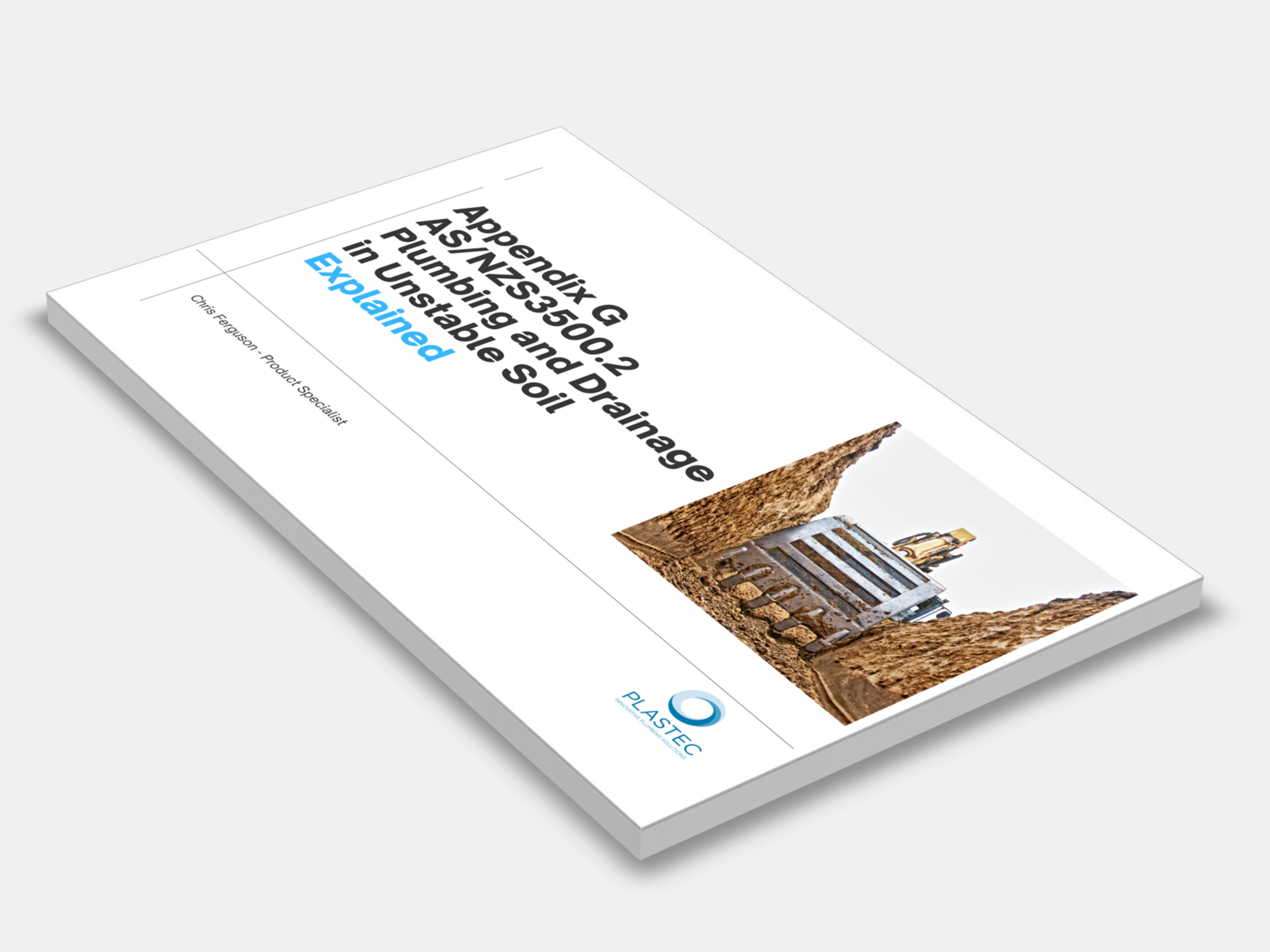
Type
Publisher
Plastec
Publisher
Plastec
Version:
2021.
(Current)
Short Description
Explains AS/NZS 3500.2:2021 Appendix G.
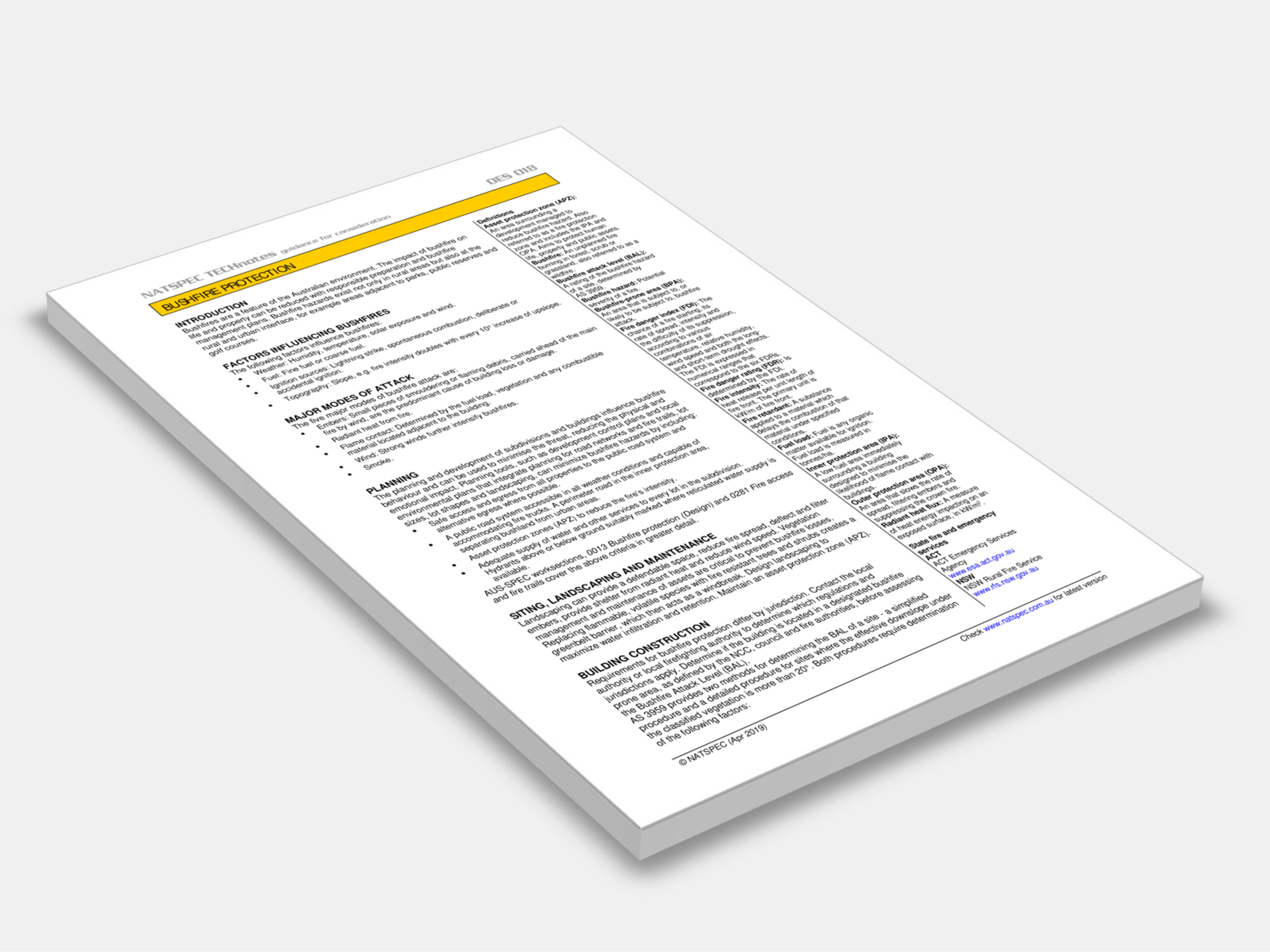
Type
Publisher
NATSPEC
Publisher
NATSPEC
Version: (Current)
Short Description
Bushfires are a feature of the Australian environment. The impact of bushfire on life and property can be reduced with responsible preparation and bushfire management plans. Bushfire hazards exist not only in rural areas but also at the rural and urban interface, for example areas adjacent to parks, public reserves and golf courses.
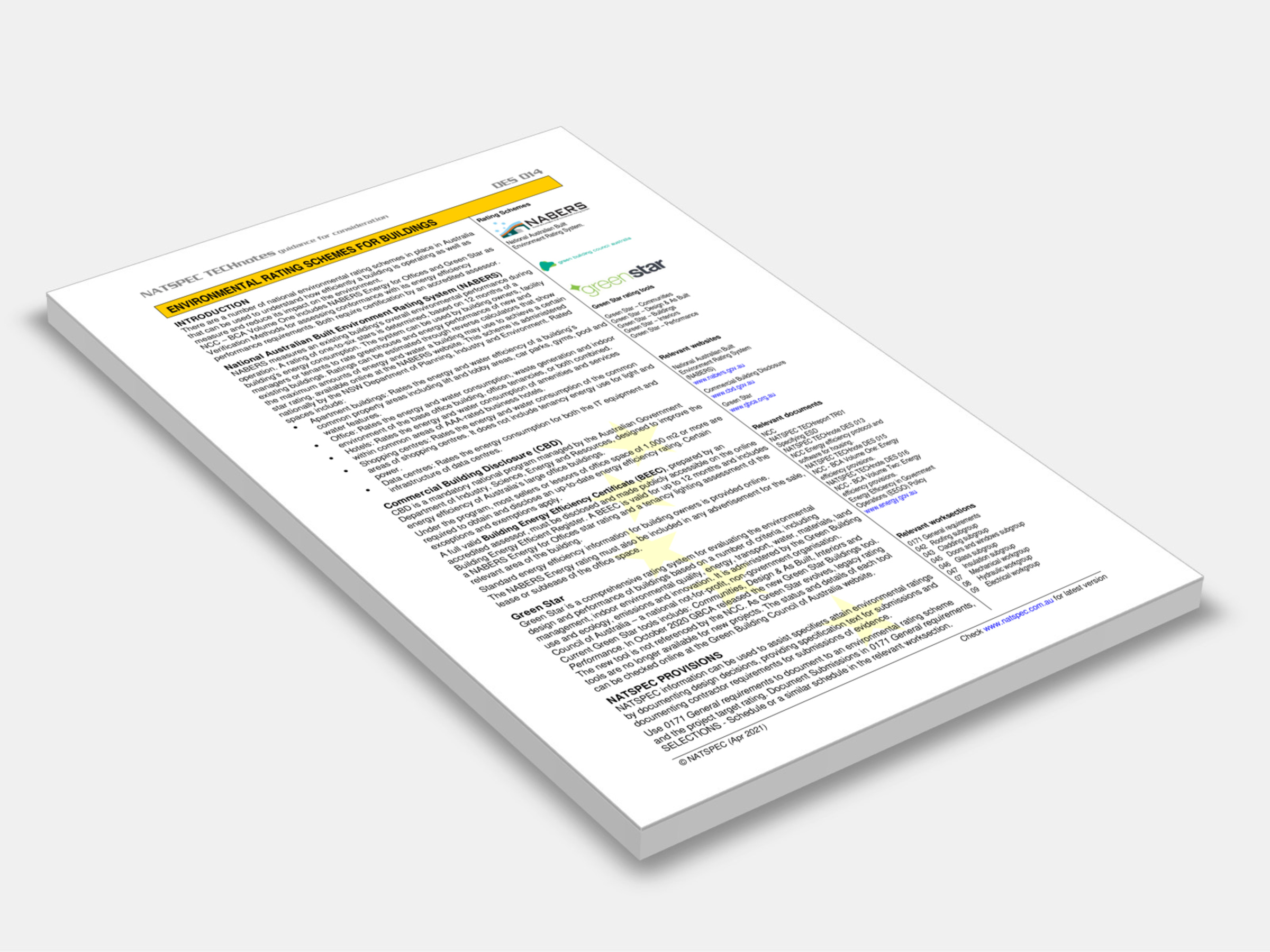
Type
Publisher
NATSPEC
Publisher
NATSPEC
Version: (Current)
Short Description
There are a number of national environmental rating schemes in place in Australia that can be used to understand how efficiently a building is operating as well as measure and reduce its impact on the environment.
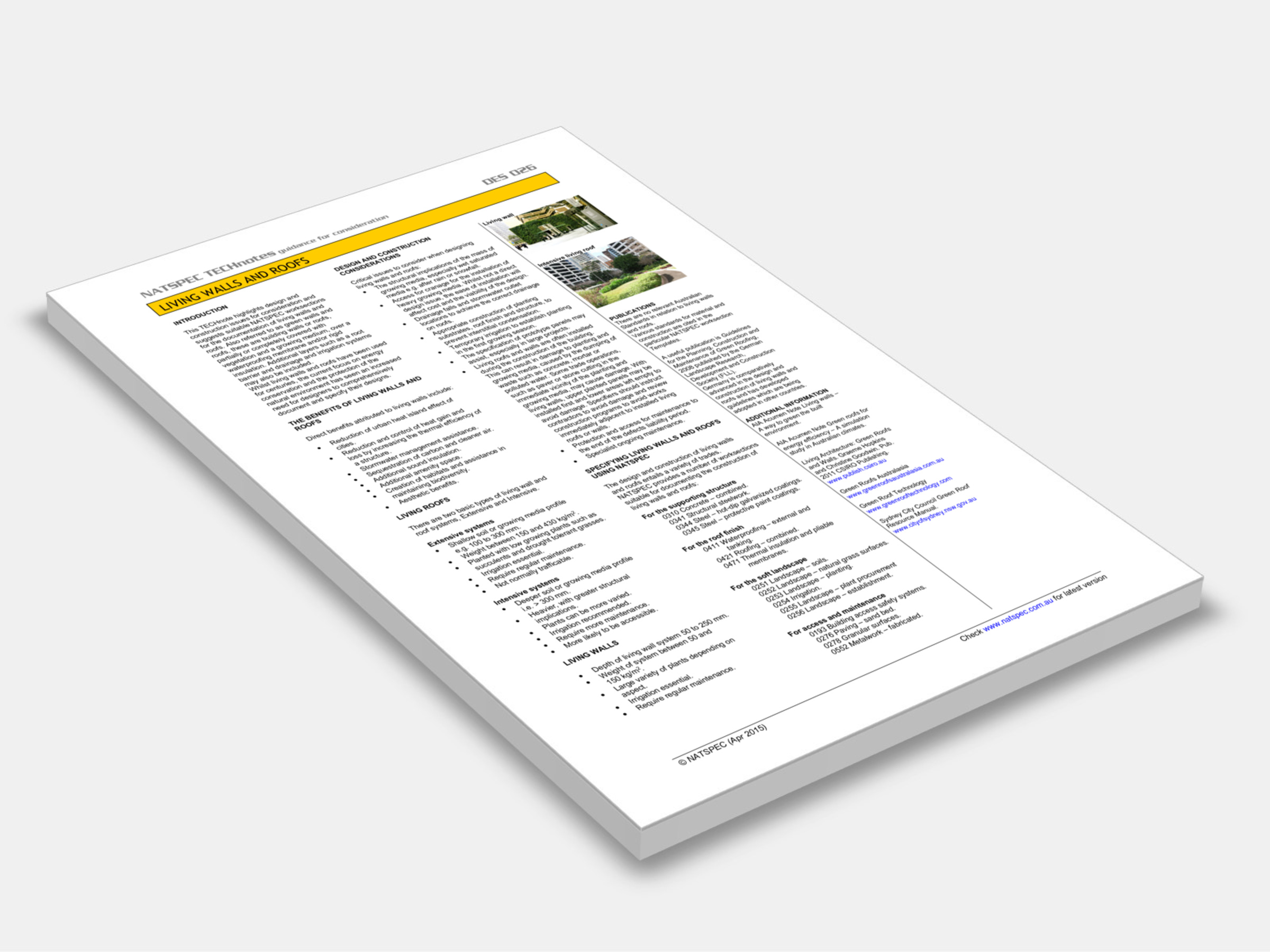
Type
Publisher
NATSPEC
Publisher
NATSPEC
Version: (Current)
Short Description
This TECHnote highlights design and construction issues for consideration and suggests suitable NATSPEC worksections for the documentation of living walls and roofs.
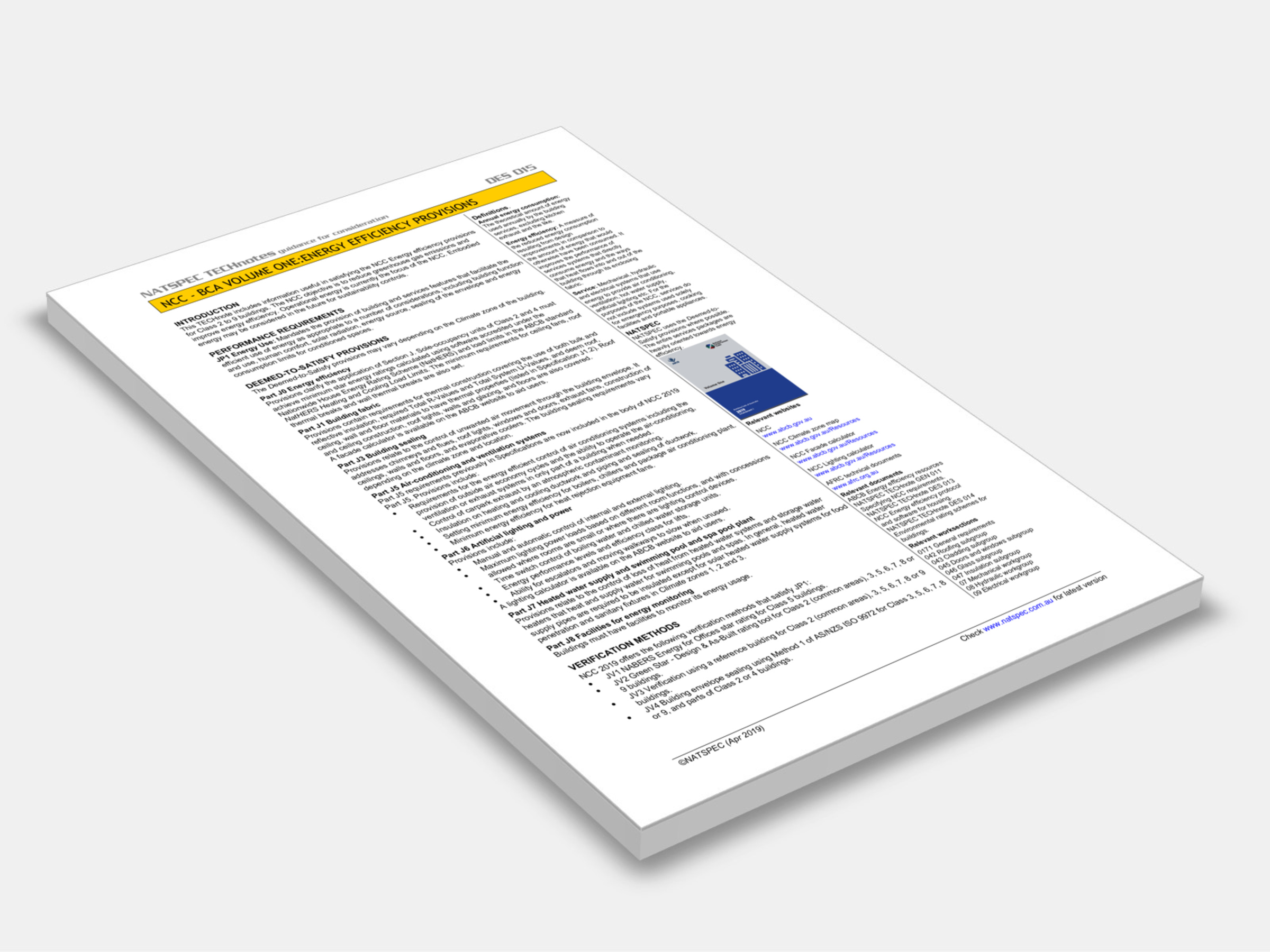
Type
Publisher
NATSPEC
Publisher
NATSPEC
Version: (Current)
Short Description
This TECHnote includes information useful in satisfying the NCC Energy efficiency provisions for Class 2 to 9 buildings. The NCC objective is to reduce greenhouse gas emissions and improve energy efficiency. Operational energy is currently the focus of the NCC. Embodied energy may be considered in the future for sustainability controls.